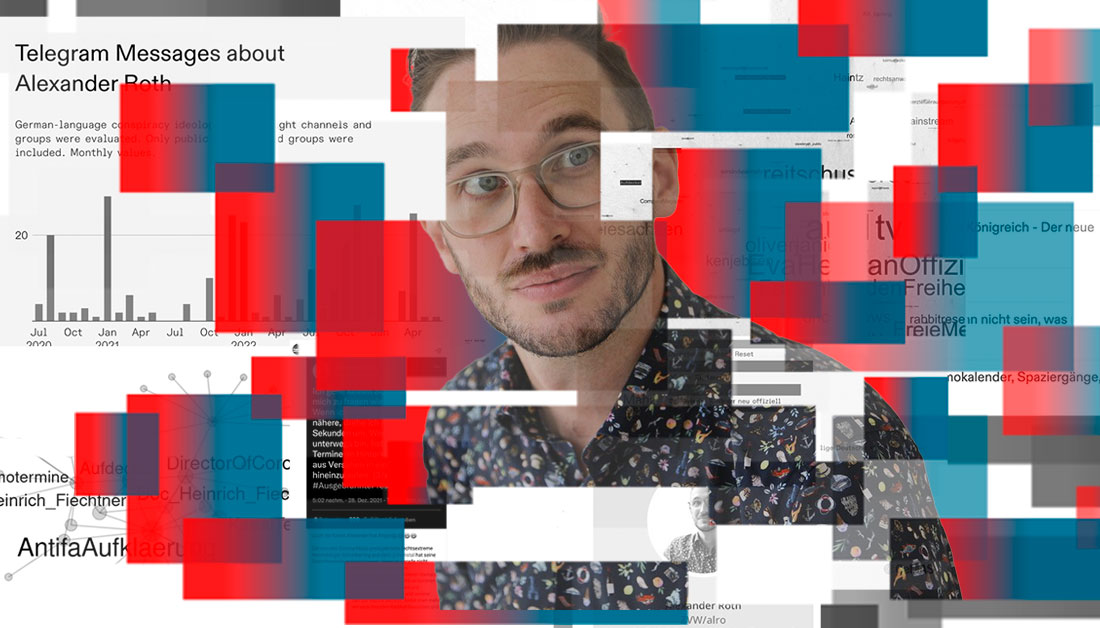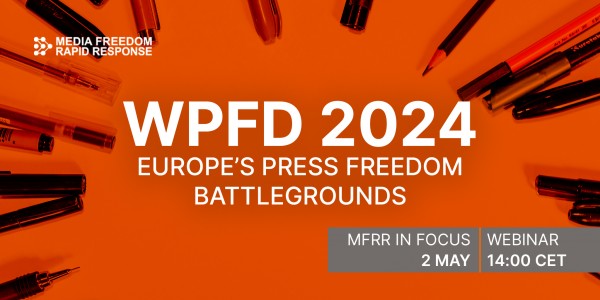A new investigation released today exposes some of the disinformation tactics employed by far-right and conspiracy groups in Germany to erode trust in the media.
The investigation, conducted by a group of investigative journalists at the German daily taz, examines the smear campaign and intimidating techniques against local journalist Alexander Roth in Waiblingen, a small city in the outskirts of Stuttgart. Hundreds of hate messages since the beginning of the pandemic are aimed at silencing his critical reporting. The physical proximity of the harassers increases the level of threat.
In the “Querdenker” (a movement that emerged out of anti-lockdown protests) stronghold in the Stuttgart area, a scene of alternative-minded vaccine opponents, conspiracy theorists, “Reichsbürger” (the “sovereign citizen” movement), and AfD politicians blurs together. The result is a network of local actors – that are well connected to the nationwide far-right milieu – for whom Roth has become a personal target.
Threats are a part of Roth’s daily life. For years, Roth has been reporting on the far-right and “Querdenker” scene and, for years, he has felt a target on his back. Influential figures in this scene have labeled the journalist as a “Nazi” and as a mouthpiece of an elite, corrupted system to diminish his work. On top of that, Roth has been insulted and repeatedly threatened with death at anti-vaxx rallies, to a point that Roth has to restrict his private life and assess in coordination with the police whether it is safe for him to report from these demonstrations.
The taz newspaper has identified the individuals inciting the disinformation and intimidation campaign against Roth, confronted them, and conducted interviews. Together with experts from the Center for Monitoring, Analysis, and Strategy (CeMAS), they were able to analyze their networks on the social media platform Telegram to identify the most influential channels and actors coordinating the actions against Roth.
A new episode of the podcast series Decoding Disinformation accompanies the launch of the case study. The podcast interviews both Alexander Roth and the taz journalists to examine the methodologies used in the investigation and understand the toll this persistent campaign takes on Roth.
This is the second case study released as part of the project Decoding the Disinformation Playbook. IPI, taz, and Faktograf are working together to decode populist propaganda in Europe targeting fact-checkers and investigative journalists – who are both essential players in the fight against disinformation.
- Full report: Alexander Roth: Threatened by the far-right next door
- Listen to the podcast: Episode 5: Alexander Roth – Smeared and threatened by the far-right next door
- Visit the project page to read the previous case study and all other related content.
___________
This article is part of the project Decoding the disinformation playbook of populism in Europe, which is supported by the European Media and Information Fund, managed by Calouste Gulbenkian Foundation.
Disclaimer:
The sole responsibility for any content supported by the European Media and Information Fund lies with the author(s) and it may not necessarily reflect the positions of the EMIF and the Fund Partners, the Calouste Gulbenkian Foundation and the European University Institute.



